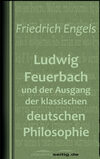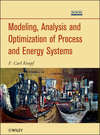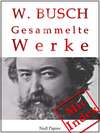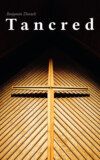Kitabı oku: «Henrietta Temple: A Love Story», sayfa 9
CHAPTER VII
In Which Captain Armine Indulges in a Reverie.
THE squire’s carriage was announced, and then came his lady’s shawl. How happy was Ferdinand when he recollected that he was to remain at Ducie. Remain at Ducie!
Remain under the same roof as Henrietta Temple. What bliss! what ravishing bliss! All his life, and his had not been a monotonous one; it seemed that all his life could not afford a situation so adventurous and so sweet as this. Now they have gone. The squire and his lady, and the worthy rector who recollected Armine so well; they have all departed, all the adieus are uttered; after this little and unavoidable bustle, silence reigns in the salon of Ducie. Ferdinand walked to the window. The moon was up; the air was sweet and hushed; the landscape clear, though soft. Oh! what would he not have given to have strolled in that garden with Henrietta Temple, to have poured forth his whole soul to her, to have told her how wondrous fair she was, how wildly bewitching, and how he loved her, how he sighed to bind his fate with hers, and live for ever in the brilliant atmosphere of her grace and beauty.
‘Good night, Captain Armine,’ said Henrietta Temple.
He turned hastily round, he blushed, he grew pale. There she stood, in one hand a light, the other extended to her father’s guest. He pressed her hand, he sighed, he looked confused; then suddenly letting go her hand, he walked quickly towards the door of the salon, which he opened that she might retire.
‘The happiest day of my life has ended,’ he muttered.
‘You are so easily content then, that I think you must always be happy.’
‘I fear I am not so easily content as you imagine.’
She has gone. Hours, many and long hours, must elapse before he sees her again, before he again listens to that music, watches that airy grace, and meets the bright flashing of that fascinating eye. What misery was there in this idea? How little had he seemed hitherto to prize the joy of being her companion. He cursed the hours which had been wasted away from her in the morning’s sport; he blamed himself that he had not even sooner quitted the dining-room, or that he had left the salon for a moment, to commune with his own thoughts in the garden. With difficulty he restrained himself from reopening the door, to listen for the distant sound of her footsteps, or catch, perhaps, along some corridor, the fading echo of her voice. But Ferdinand was not alone; Mr. Temple still remained. That gentleman raised his face from the newspaper as Captain Armine advanced to him; and, after some observations about the day’s sport, and a hope that he would repeat his trial of the manor to-morrow, proposed their retirement. Ferdinand of course assented, and in a moment he was ascending with his host the noble and Italian staircase: and he then was ushered from the vestibule into his room.
His previous visit to the chamber had been so hurried, that he had only made a general observation on its appearance. Little inclined to slumber, he now examined it more critically. In a recess was a French bed of simple furniture. On the walls, which were covered with a rustic paper, were suspended several drawings, representing views in the Saxon Switzerland. They were so bold and spirited that they arrested attention; but the quick eye of Ferdinand instantly detected the initials of the artist in the corner. They were letters that made his heart tremble, as he gazed with admiring fondness on her performances. Before a sofa, covered with a chintz of a corresponding pattern with the paper of the walls, was placed a small French table, on which were writing materials; and his toilet-table and his mantelpiece were profusely ornamented with rare flowers; on all sides were symptoms of female taste and feminine consideration.
Ferdinand carefully withdrew from his coat the flower that Henrietta had given him in the morning, and which he had worn the whole day. He kissed it, he kissed it more than once; he pressed its somewhat faded form to his lips with cautious delicacy; then tending it with the utmost care, he placed it in a vase of water, which holding in his hand, he threw himself into an easy chair, with his eyes fixed on the gift he most valued in the world.
An hour passed, and Ferdinand Armine remained fixed in the same position. But no one who beheld that beautiful and pensive countenance, and the dreamy softness of that large grey eye, could for a moment conceive that his thoughts were less sweet than the object on which they appeared to gaze. No distant recollections disturbed him now, no memory of the past, no fear of the future. The delicious present monopolised his existence. The ties of duty, the claims of domestic affection, the worldly considerations that by a cruel dispensation had seemed, as it were, to taint even his innocent and careless boyhood, even the urgent appeals of his critical and perilous situation; all, all were forgotten in one intense delirium of absorbing love.
Anon he rose from his seat, and paced his room for some minutes, with his eyes fixed on the ground. Then throwing off his clothes, and taking the flower from the vase, which he had previously placed on the table, he deposited it in his bosom. ‘Beautiful, beloved flower,’ exclaimed he; ‘thus, thus will I win and wear your mistress!’
CHAPTER VIII
A Strange Dream.
RESTLESS are the dreams of the lover that is young. Ferdinand Armine started awake from the agony of a terrible slumber. He had been walking in a garden with Henrietta Temple, her hand was clasped in his, her eyes fixed on the ground, as he whispered delicious words. His face was flushed, his speech panting and low. Gently he wound his vacant arm round her graceful form; she looked up, her speaking eyes met his, and their trembling lips seemed about to cling into a–
When lo! the splendour of the garden faded, and all seemed changed and dim; instead of the beautiful arched walks, in which a moment before they appeared to wander, it was beneath the vaulted roof of some temple that they now moved; instead of the bed of glowing flowers from which he was about to pluck an offering for her bosom, an altar rose, from the centre of which upsprang a quick and lurid tongue of fire. The dreamer gazed upon his companion, and her form was tinted with the dusky hue of the flame, and she held to her countenance a scarf, as if pressed by the unnatural heat. Great fear suddenly came over him. With haste, yet with tenderness, he himself withdrew the scarf from the face of his companion, and this movement revealed the visage of Miss Grandison.
Ferdinand Armine awoke and started up in his bed. Before him still appeared the unexpected figure. He jumped out of bed, he gazed upon the form with staring eyes and open mouth. She was there, assuredly she was there; it was Katherine, Katherine his betrothed, sad and reproachful. The figure faded before him; he advanced with outstretched hand; in his desperation he determined to clutch the escaping form: and he found in his grasp his dressing-gown, which he had thrown over the back of a chair.
‘A dream, and but a dream, after all,’ he muttered to himself; ‘and yet a strange one.’
His brow was heated; he opened the casement. It was still night; the moon had vanished, but the stars were still shining. He recalled with an effort the scene with which he had become acquainted yesterday for the first time. Before him, serene and still, rose the bowers of Ducie. And their mistress? That angelic form whose hand he had clasped in his dream, was not then merely a shadow. She breathed, she lived, and under the same roof. Henrietta Temple was at this moment under the same roof as himself: and what were her slumbers? Were they wild as his own, or sweet and innocent as herself? Did his form flit over her closed vision at this charmed hour, as hers had visited his? Had it been scared away by an apparition as awful? Bore anyone to her the same relation as Katherine Grandison to him? A fearful surmise, that had occurred to him now for the first time, and which it seemed could never again quit his brain. The stars faded away, the breath of morn was abroad, the chant of birds arose. Exhausted in body and in mind, Ferdinand Armine flung himself upon his bed, and soon was lost in slumbers undisturbed as the tomb.
CHAPTER IX
Which I Hope May Prove as Agreeable to the Reader as to Our Hero.
FERDINAND’S servant, whom he had despatched the previous evening to Armine, returned early with his master’s letters; one from his ‘mother, and one from Miss Grandison.
They were all to arrive at the Place on the day after the morrow. Ferdinand opened these epistles with a trembling hand. The sight of Katherine’s, his Katherine’s, handwriting was almost as terrible as his dream. It recalled to him, with a dreadful reality, his actual situation, which he had driven from his thoughts. He had quitted his family, his family who were so devoted to him, and whom he so loved, happy, nay, triumphant, a pledged and rejoicing bridegroom. What had occurred during the last eight-and-forty hours seemed completely to have changed all his feelings, all his wishes, all his views, all his hopes! He had in that interval met a single human being, a woman, a girl, a young and innocent girl; he had looked upon that girl and listened to her voice, and his soul was changed as the earth by the sunrise. As lying in his bed he read these letters, and mused over their contents, and all the thoughts that they suggested, the strangeness of life, the mystery of human nature, were painfully impressed upon him. His melancholy father, his fond and confiding mother, the devoted Glastonbury, all the mortifying circumstances of his illustrious race, rose in painful succession before him. Nor could he forget his own wretched follies and that fatal visit to Bath, of which the consequences clanked upon his memory like degrading and disgraceful fetters. The burden of existence seemed intolerable. That domestic love which had so solaced his existence, recalled now only the most painful associations. In the wildness of his thoughts he wished himself alone in the world, to struggle with his fate and mould his fortunes. He felt himself a slave and a sacrifice. He cursed Armine, his ancient house, and his broken fortunes. He felt that death was preferable to life without Henrietta Temple. But even supposing that he could extricate himself from his rash engagement; even admitting that all worldly considerations might be thrown aside, and the pride of his father, and his mother’s love, and Glastonbury’s pure hopes, might all be outraged; what chance, what hope was there of obtaining his great object? What was he, what was he, Ferdinand Armine, free as the air from the claims of Miss Grandison, with all sense of duty rooted out of his once sensitive bosom, and existing only for the gratification of his own wild fancies? A beggar, worse than a beggar, without a home, without the possibility of a home to offer the lady of his passion; nay, not even secure that the harsh process of the law might not instantly claim its victim, and he himself be hurried from the altar to the gaol!
Moody and melancholy, he repaired to the salon; he beheld Henrietta Temple, and the cloud left his brow, and lightness came to his heart. Never had she looked so beautiful, so fresh and bright, so like a fair flower with the dew upon its leaves. Her voice penetrated his soul; her sunny smile warmed his breast. Her father greeted him too with kindness, and inquired after his slumbers, which he assured Mr. Temple had been satisfactory.
‘I find,’ continued Mr. Temple, ‘that the post has brought me some business to-day which, I fear, claims the morning to transact; but I hope you will not forget your promise. The keeper will be ready whenever you summon him.’
Ferdinand muttered something about trouble and intrusion, and the expected arrival of his family; but Miss Temple begged him to accept the offer, and refusal was impossible.
After breakfast Mr. Temple retired to his library, and Ferdinand found himself alone for the first time with Henrietta Temple.
She was copying a miniature of Charles the First. Ferdinand looked over her shoulder.
‘A melancholy countenance!’ he observed.
‘It is a favourite one of mine,’ she replied.
‘Yet you are always gay.’
‘Always.’
‘I envy you, Miss Temple.’
‘What, are you melancholy?’
‘I have every cause.’
‘Indeed, I should have thought the reverse.’
‘I look upon myself as the most unfortunate of human beings,’ replied Ferdinand.
He spoke so seriously, in a tone of such deep and bitter feeling, that Miss Temple could not resist looking up at her companion. His countenance was gloomy.
‘You surprise me,’ said Miss Temple; ‘I think that few people ought to be unhappy, and I rather suspect fewer are than we imagine.’
‘All I wish is,’ replied he, ‘that the battle of Newbury had witnessed the extinction of our family as well as our peerage.’
‘A peerage, and such a peerage as yours, is a fine thing,’ said Henrietta Temple, ‘a very fine thing; but I would not grieve, if I were you, for that. I would sooner be an Armine without a coronet than many a brow I wot of with.’
‘You misconceived a silly phrase,’ rejoined Ferdinand. ‘I was not thinking of the loss of our coronet, though that is only part of the system. Our family, I am sure, are fated. Birth without honour, estates without fortune, life without happiness, that is our lot.’
‘As for the first,’ said Miss Temple, ‘the honourable are always honoured; money, in spite of what they say, I feel is not the greatest thing in the world; and as for misery, I confess I do not very readily believe in the misery of youth.’
‘May you never prove it!’ replied Ferdinand; ‘may you never be, as I am, the victim of family profligacy and family pride!’ So saying, he turned away, and, taking up a book, for a few minutes seemed wrapped in his reflections.
He suddenly resumed the conversation in a more cheerful tone. Holding a volume of Petrarch in his hand, he touched lightly, but with grace, on Italian poetry; then diverged into his travels, recounted an adventure with sprightliness, and replied to Miss Temple’s lively remarks with gaiety and readiness. The morning advanced; Miss Temple closed her portfolio and visited her flowers, inviting him to follow her. Her invitation was scarcely necessary, his movements were regulated by hers; he was as faithful to her as her shadow. From the conservatory they entered the garden; Ferdinand was as fond of gardens as Miss Temple. She praised the flower-garden of Armine. He gave her some account of its principal creator. The character of Glastonbury highly interested Miss Temple. Love is confidential; it has no fear of ridicule. Ferdinand entered with freedom and yet with grace into family details, from which, at another time and to another person, he would have been the first to shrink. The imagination of Miss Temple was greatly interested by his simple, and, to her, affecting account of this ancient line living in their hereditary solitude, with all their noble pride and haughty poverty. The scene, the circumstances, were all such as please a maiden’s fancy; and he, the natural hero of this singular history, seemed deficient in none of those heroic qualities which the wildest spirit of romance might require for the completion of its spell. Beautiful as his ancestors, and, she was sure, as brave, young, spirited, graceful, and accomplished, a gay and daring spirit blended with the mournful melody of his voice, and occasionally contrasted with the somewhat subdued and chastened character of his demeanour.
‘Well, do not despair,’ said Henrietta Temple; ‘riches did not make Sir Ferdinand happy. I feel confident the house will yet flourish.’
‘I have no confidence,’ replied Ferdinand; ‘I feel the struggle with our fate to be fruitless. Once indeed I felt like you; there was a time when I took even a fancied pride in all the follies of my grandfather. But that is past; I have lived to execrate his memory.’
‘Hush! hush!’
‘Yes, to execrate his memory! I repeat, to execrate his memory! His follies stand between me and my happiness.’
‘Indeed, I see not that.’
‘May you never! I cannot disguise from myself that I am a slave, and a wretched one, and that his career has entailed this curse of servitude upon me. But away with this! You must think me, Miss Temple, the most egotistical of human beings; and yet, to do myself justice, I never remember having spoken of myself so much before.’
‘Will you walk with me?’ said Miss Temple, after a moment’s silence; ‘you seem little inclined to avail yourself of my father’s invitation to solitary sport. But I cannot stay at home, for I have visits to pay, although I fear you will consider them rather dull ones.’ ‘Why so?’
‘My visits are to cottages.’
‘I love nothing better. I used ever to be my mother’s companion on such occasions.’
So, crossing the lawn, they entered a beautiful wood of considerable extent, which formed the boundary of the grounds, and, after some time passed in agreeable conversation, emerged upon a common of no ordinary extent or beauty, for it was thickly studded in some parts with lofty timber, while in others the furze and fern gave richness and variety to the vast wilderness of verdant turf, scarcely marked, except by the light hoof of Miss Temple’s palfrey.
‘It is not so grand as Armine Park,’ said Miss Temple; ‘but we are proud of our common.’
The thin grey smoke that rose in different directions was a beacon to the charitable visits of Miss Temple. It was evident that she was a visitor both habitual and beloved. Each cottage-door was familiar to her entrance. The children smiled at her approach; their mothers rose and courtesied with affectionate respect. How many names and how many wants had she to remember! yet nothing was forgotten. Some were rewarded for industry, some were admonished not to be idle; but all were treated with an engaging suavity more efficacious than gifts or punishments. The aged were solaced by her visit; the sick forgot their pains; and, as she listened with sympathising patience to long narratives of rheumatic griefs, it seemed her presence in each old chair, her tender enquiries and sanguine hopes, brought even more comfort than her plenteous promises of succour from the Bower, in the shape of arrowroot and gruel, port wine and flannel petticoats.
This scene of sweet simplicity brought back old days and old places to the memory of Ferdinand Armine. He thought of the time when he was a happy boy at his innocent home; his mother’s boy, the child she so loved and looked after, when a cloud upon her brow brought a tear into his eye, and when a kiss from her lips was his most dear and desired reward. The last night he had passed at Armine, before his first departure, rose up to his recollection; all his mother’s passionate fondness, all her wild fear that the day might come when her child would not love her so dearly as he did then. That time had come. But a few hours back, ay! but a few hours back, and he had sighed to be alone in the world, and had felt those domestic ties which had been the joy of his existence a burthen and a curse. A tear stole down his cheek; he stepped forth from the cottage to conceal his emotion. He seated himself on the trunk of a tree, a few paces withdrawn; he looked upon the declining sun that gilded the distant landscape with its rich yet pensive light. The scenes of the last five years flitted across his mind’s eye in fleet succession; his dissipation, his vanity, his desperate folly, his hollow worldliness. Why, oh! why had he ever left his unpolluted home? Why could he not have lived and died in that sylvan paradise? Why, oh! why was it impossible to admit his beautiful companion into that sweet and serene society? Why should his love for her make his heart a rebel to his hearth? Money! horrible money! It seemed to him that the contiguous cottage and the labour of his hands, with her, were preferable to palaces and crowds of retainers without her inspiring presence. And why not screw his courage to the sticking-point, and commune in confidence with his parents? They loved him; yes, they idolised him! For him, for him alone, they sought the restoration of their house and fortunes. Why, Henrietta Temple was a treasure richer than any his ancestors had counted. Let them look on her, let them listen to her, let them breathe as he had done in her enchantment; and could they wonder, could they murmur, at his conduct? Would they not, oh! would they not, rather admire, extol it! But, then, his debts, his overwhelming debts. All the rest might be faced. His desperate engagement might be broken; his family might be reconciled to obscurity and poverty: but, ruin! what was to grapple with his impending ruin? Now his folly stung him; now the scorpion entered his soul. It was not the profligacy of his ancestor, it was not the pride of his family then, that stood between him and his love; it was his own culpable and heartless career! He covered his face with his hands; something touched him lightly; it was the parasol of Miss Temple.
‘I am afraid,’ she said, ‘that my visits have wearied you; but you have been very kind and good.’
He rose rapidly, with a slight blush. ‘Indeed,’ he replied, ‘I have passed a most delightful morning, and I was only regretting that life consisted of anything else but cottages and yourself.’
They were late; they heard the first dinner-bell at Ducie as they re-entered the wood. ‘We must hurry on,’ said Miss Temple; ‘dinner is the only subject on which papa is a tyrant. What a sunset! I wonder if Lady Armine will return on Saturday. When she returns, I hope you will make her call upon us, for I want to copy the pictures in your gallery.’
‘If they were not heir-looms, I would give them you,’ said Ferdinand; ‘but, as it is, there is only one way by which I can manage it.’
‘What way?’ enquired Miss Temple, very innocently.
‘I forget,’ replied Ferdinand, with a peculiar smile. Miss Temple looked a little confused.




















